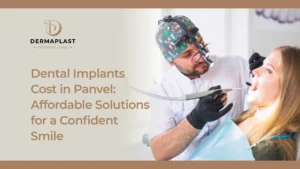In today’s image-conscious world, the pressure to conform to societal beauty standards has never been higher. But fear not! With the aesthetic doctor, there is now a way to enhance your self-confidence and transform your appearance.
Enter the realm of aesthetic doctors – professionals who specialize in cosmetic procedures aimed at improving one’s physical features. These skilled individuals have become instrumental in helping people achieve their desired looks and boost their self-esteem. From non-surgical treatments like Botox and fillers to more advanced surgical procedures, aesthetic doctors offer a wide range of options tailored to individual needs.
Understanding the Role of Aesthetic Doctors

Aesthetic doctors play a crucial role in enhancing and improving our physical appearance. They are highly qualified professionals who undergo specialized training to provide various aesthetic treatments. Here’s what you need to know about their role:
Definition of an aesthetic doctor
An aesthetic doctor, also known as a cosmetic physician, is a medical practitioner who focuses on non-surgical cosmetic procedures. They specialize in enhancing the aesthetics of the face, body, and skin through treatments such as injectables, laser therapies, and minimally invasive procedures.
Qualifications and specialized training required
Becoming an aesthetic doctor requires extensive education and training. These professionals typically hold a medical degree and have completed additional postgraduate training in cosmetic medicine or dermatology. This specialized knowledge equips them with the skills necessary to perform aesthetic procedures safely and effectively.
Scope of practice: what aesthetic doctors can and cannot do
Aesthetic doctors are trained to offer a wide range of non-surgical treatments but have limitations on certain procedures that require surgical intervention.
Popular Aesthetic Treatments
Non-surgical Procedures
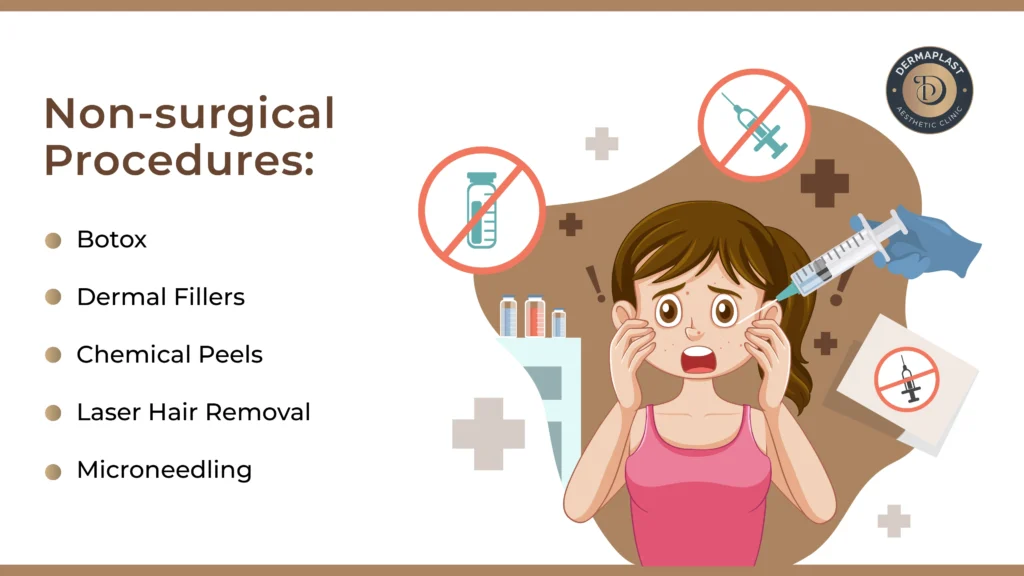
Non-surgical treatments have gained immense popularity. These minimally invasive options offer effective solutions for various skin conditions without the need for extensive plastic surgery. Let’s explore some of the most sought-after non-surgical treatments in the cosmetic industry:
| Botox | Known for its remarkable power in erasing wrinkles, botulinum toxin injections have become a go-to treatment for many individuals seeking a more youthful appearance. |
| Dermal Fillers | With their ability to enhance natural beauty and restore lost volume, dermal fillers are highly favored among those looking to achieve precise facial contouring and plumpness. |
| Chemical Peels | Offering a rejuvenating effect, chemical peels help reveal radiant and glowing skin by removing dead cells and stimulating collagen production. |
| Laser Hair Removal | Say goodbye to unwanted hair with this popular treatment that uses laser technology to target hair follicles, resulting in smooth and hair-free skin. |
| Microneedling | Harnessing the skin’s regenerative power, microneedling involves creating tiny punctures on the skin’s surface, encouraging collagen production and improving overall skin texture. |
Surgical Procedures
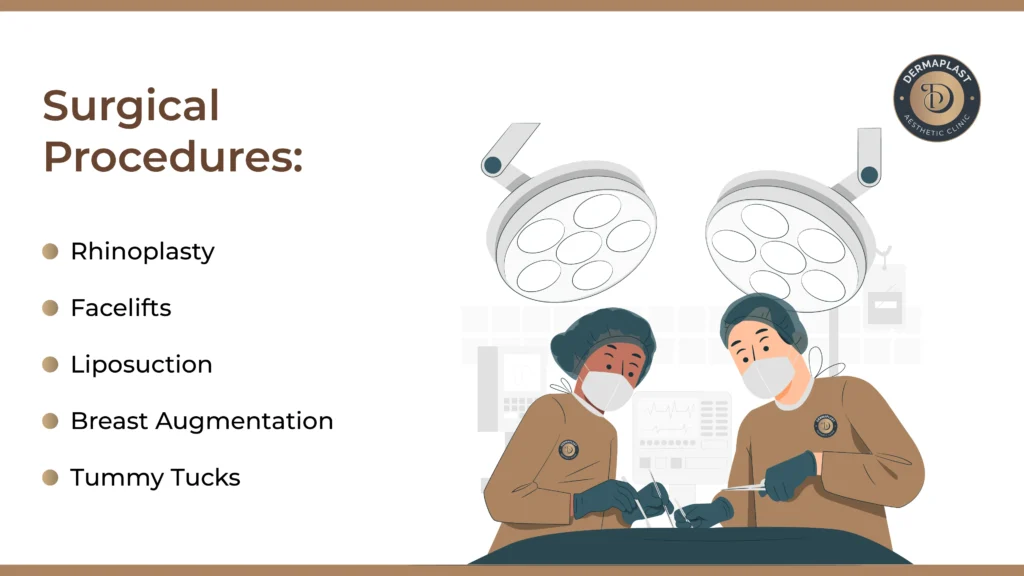
- Looking to enhance your appearance? Consider these popular cosmetic procedures:
- RhinoplastyAchieve the perfect nose shape you desireFaceliftsTurn back the clock and regain a youthful look with precision techniquesLiposuctionRedefine your body contours and curves for a more sculpted appearanceBreast AugmentationBoost your confidence and grace with enhanced breastsTummy Tucks
- Discover the secret to a flatter stomach and achieve a more toned physique
Aesthetic Doctors: Artists and Scientists

Aesthetic doctors are a unique blend of artists and scientists, combining their medical knowledge with an artistic vision to create personalized treatments tailored to individual needs. With expertise in aesthetic medicine, these physicians specialize in enhancing the aesthetics of their patients, delivering results that not only improve appearance but also boost self-confidence.
The field of aesthetic medicine encompasses various specialties, including plastic surgeons, dermatologists, general practitioners, and other medical doctors who have undergone specialized training in aesthetics. These professionals bring together their skills from different disciplines to offer a comprehensive approach to achieving optimal aesthetic outcomes.
Here’s why aesthetic doctors are considered both artists and scientists:
- The balance between Medical Knowledge and Artistic Vision: Aesthetic doctors possess extensive medical training acquired through years of education and practice. They combine this knowledge with an artistic eye for beauty to understand the nuances of facial harmony, proportionality, and symmetry. By blending medical expertise with creative flair, they can create natural-looking results that enhance each patient’s unique features.
- Customized Approach: Tailoring Treatments to Individual Needs: Aesthetic doctors recognize that every patient is different and requires a personalized approach. They carefully assess each individual’s concerns, preferences, and physical attributes before recommending suitable treatments. This customized approach ensures that patients receive tailored solutions that address their specific goals while maintaining their natural beauty.
Debunking Myths and Misconceptions

Aesthetic doctors are just glorified beauticians.
Contrary to popular belief, aesthetic doctors are not simply glorified beauticians. While both professionals may work in the field of aesthetics, their roles and qualifications differ significantly. Aesthetic doctors are medical practitioners who have undergone extensive training in cosmetic procedures and dermatology. They possess a deep understanding of the human body, skin structure, and facial anatomy. This knowledge allows them to perform complex treatments with precision and safety that goes beyond what a beautician can offer.
Aesthetic treatments are only for the rich and famous.
It is a common misconception that aesthetic treatments are exclusively reserved for the affluent or celebrities. However, this notion couldn’t be further from the truth. In recent years, advancements in technology have made aesthetic procedures more accessible to a wider range of individuals. Many aesthetic clinics offer various treatment options at different price points, making them affordable for people from diverse socioeconomic backgrounds. Some clinics provide financing options or packages tailored to suit different budgets.
Aesthetic doctors can make anyone look like a celebrity.
While it is true that aesthetic doctors can enhance one’s appearance through various treatments, they cannot magically transform someone into an exact replica of a celebrity. Each individual has unique facial features and characteristics that cannot be completely altered without compromising natural aesthetics. The goal of an aesthetic doctor is to enhance one’s natural beauty while maintaining harmony with their existing features. By carefully assessing each patient’s needs and desires, these professionals create personalized treatment plans that aim to achieve realistic and flattering results.
Choosing the Right Aesthetic Doctor for You
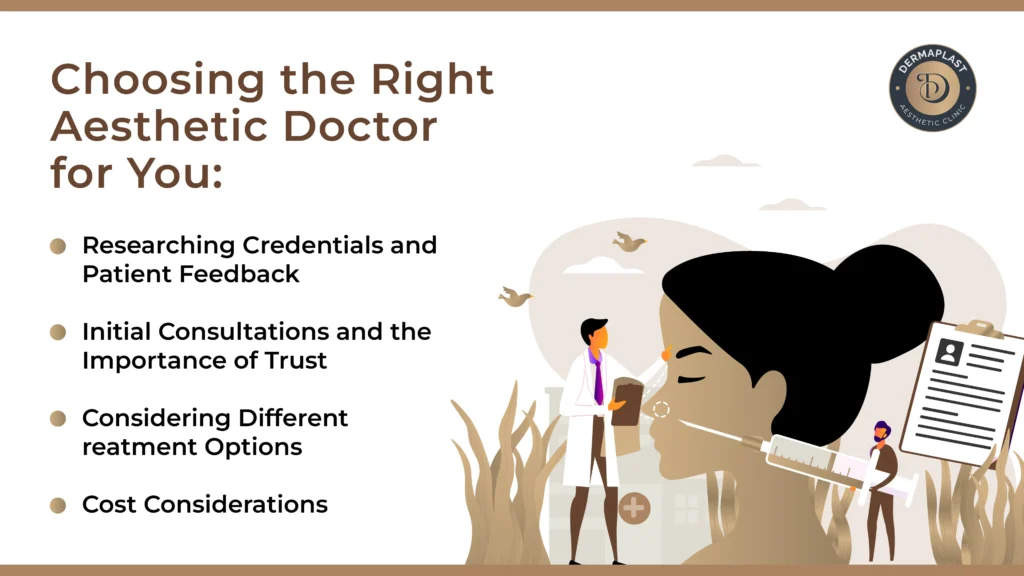
There are several factors to consider. From researching credentials and patient feedback to understanding the importance of trust during initial consultations, making an informed decision is crucial. Here are some key points to keep in mind when selecting an aesthetic doctor:
- Researching Credentials and Patient Feedback:
- Look for a cosmetic doctor who holds relevant specialist accreditation.
- Consider their qualifications and experience as a plastic surgeon or dermatologist.
- Read reviews and testimonials from previous patients to gauge their satisfaction levels.
- Initial Consultations and the Importance of Trust:
- Schedule consultations with potential doctors to discuss your goals and concerns.
- Pay attention to how well they listen and address your questions.
- Assess their ability to establish trust by providing clear explanations and realistic expectations.
- Considering Different Treatment Options:
- Discuss various treatment options available for your desired outcome.
- Understand the risks, benefits, and potential outcomes associated with each procedure.
- Ask about alternative non-surgical approaches if that aligns better with your preferences.
- Cost Considerations:
- Inquire about the cost of treatments, including any additional fees or follow-up visits.
- Determine if the doctor offers financing options or accepts insurance coverage.
Safety Concerns and Risks
Aesthetic procedures, although popular, come with their fair share of risks. It is essential for both patients and aesthetic doctors to understand and address these concerns responsibly. By minimizing risks through proper qualifications and facilities, as well as providing post-procedure care, optimal recovery can be ensured.
Common risks associated with aesthetic procedures include:
| Infection | The risk of infection is present in any procedure that involves breaking the skin. Aesthetic doctors must adhere to strict sterilization protocols to minimize this risk. |
| Allergic reactions | Some individuals may have allergies or sensitivities to certain substances used in aesthetic procedures. Doctors should conduct thorough consultations to identify any potential allergies beforehand. |
| Scarring | Poor technique or improper wound care can lead to scarring. Aesthetic doctors should have the necessary skills and experience to minimize the risk of scarring. |
To minimize these risks, it is crucial for aesthetic doctors to have the proper qualifications and training. They should also operate in facilities that meet stringent safety standards. By choosing a qualified aesthetic doctor who works in a reputable clinic or hospital, patients can significantly reduce their chances of experiencing complications.
The Psychological Impact of Aesthetic Transformations

Enhancing one’s physical appearance through aesthetic transformations can have a profound psychological impact. It goes beyond just the outward changes and extends to boosting self-confidence and enhancing mental well-being.
Integrating psychological support in the field of aesthetic medicine is crucial to addressing the emotional aspects associated with transforming one’s physical appearance. By recognizing the psychological impact, aesthetic doctors can provide comprehensive care that considers both the physical and mental well-being of their patients.
Here are some key points regarding the psychological impact of aesthetic transformations:
| Boosting self-confidence | Aesthetic enhancements can significantly boost an individual’s self-confidence. When people feel more satisfied with their physical appearance, they often experience increased self-esteem and a positive body image. This newfound confidence may extend into various areas of life, such as personal relationships, career opportunities, and overall happiness. |
| Enhancing mental well-being | Aesthetic transformations can positively influence an individual’s mental health. Feeling more content with one’s physical appearance can reduce feelings of anxiety, depression, and social insecurities related to body image. Improved mental well-being allows individuals to engage more confidently in social interactions and enjoy a higher quality of life. |
Summary
In summary, aesthetic doctors play a crucial role in helping individuals achieve their desired aesthetic transformations. They are both artists and scientists, combining their medical expertise with a keen eye for aesthetics. Popular treatments offered by these professionals include Botox injections, dermal fillers, and laser therapies, among others. However, it is important to debunk myths and misconceptions surrounding aesthetic procedures to make informed decisions.
Choosing the right aesthetic doctor is paramount to ensure a safe and satisfactory experience. Look for professionals who prioritize your safety and well-being above all else. Consider their qualifications, experience, and track record of successful treatments. Remember that safety concerns and risks exist with any medical procedure, so it’s essential to have an open conversation with your chosen doctor about potential side effects or complications.
Frequently Asked Questions (FAQs)
Can I reverse the effects of an aesthetic treatment if I’m not satisfied?
Yes, many aesthetic treatments are reversible or can be adjusted if you’re not satisfied with the results. For example, dermal fillers can be dissolved using specific enzymes if needed.
Are there any age restrictions for undergoing cosmetic procedures?
Age restrictions vary depending on the type of procedure and local regulations. It’s essential to consult with an aesthetic doctor who can assess your individual circumstances and provide guidance.
How long do the effects of aesthetic treatments typically last?
The duration of treatment effects varies depending on the specific procedure and individual factors such as metabolism. Generally, the effects of treatments like Botox or dermal fillers can last anywhere from a few months to over a year.

